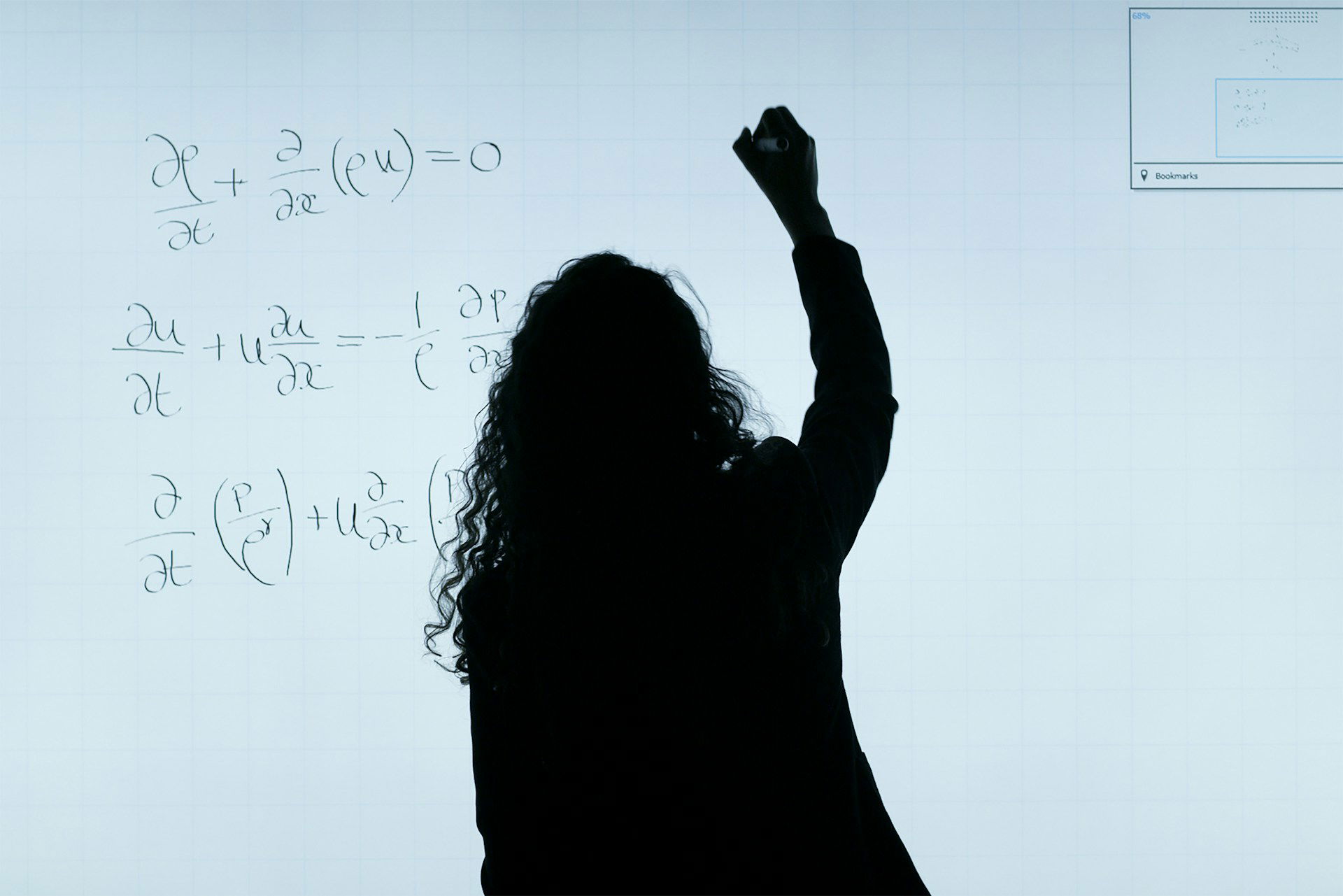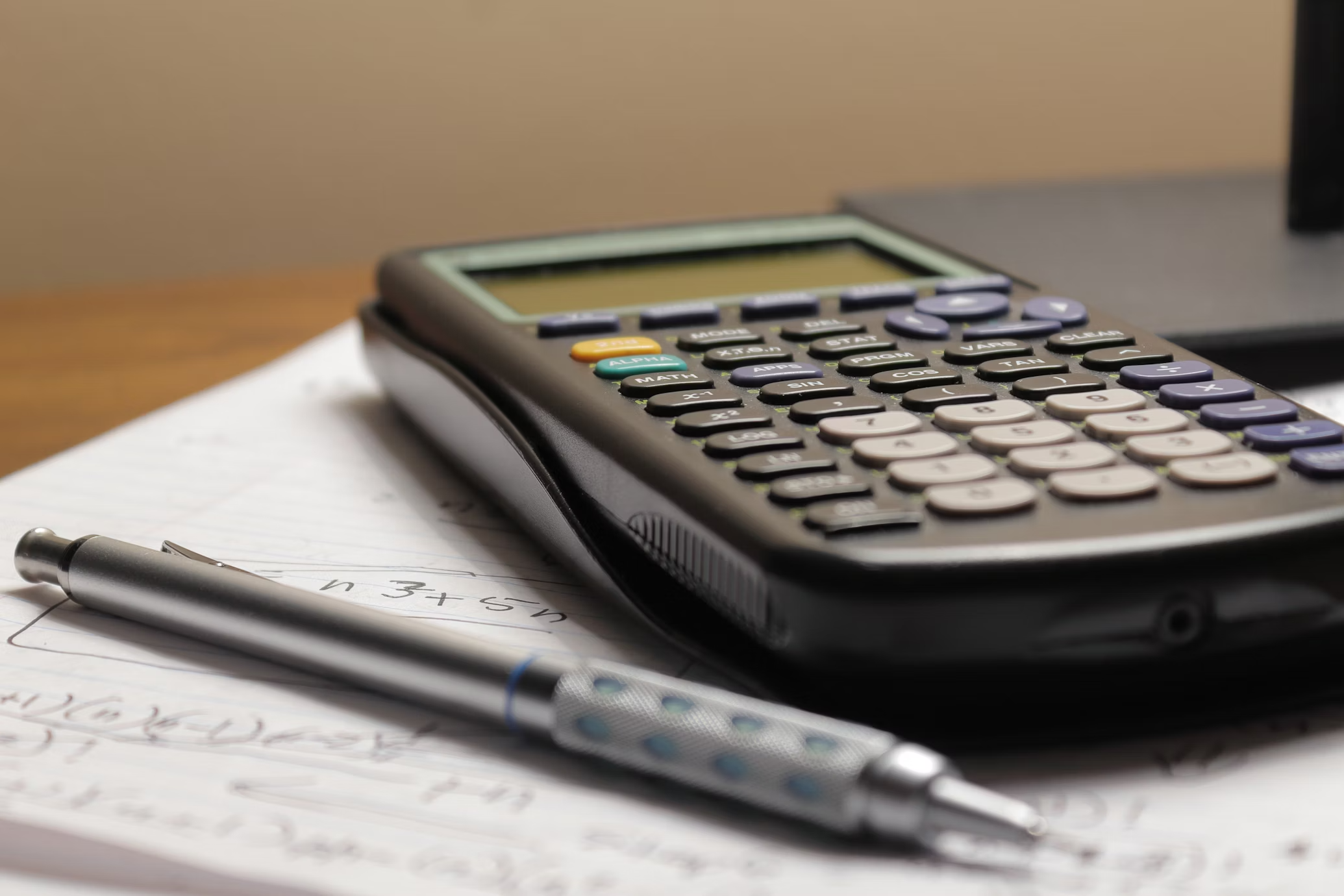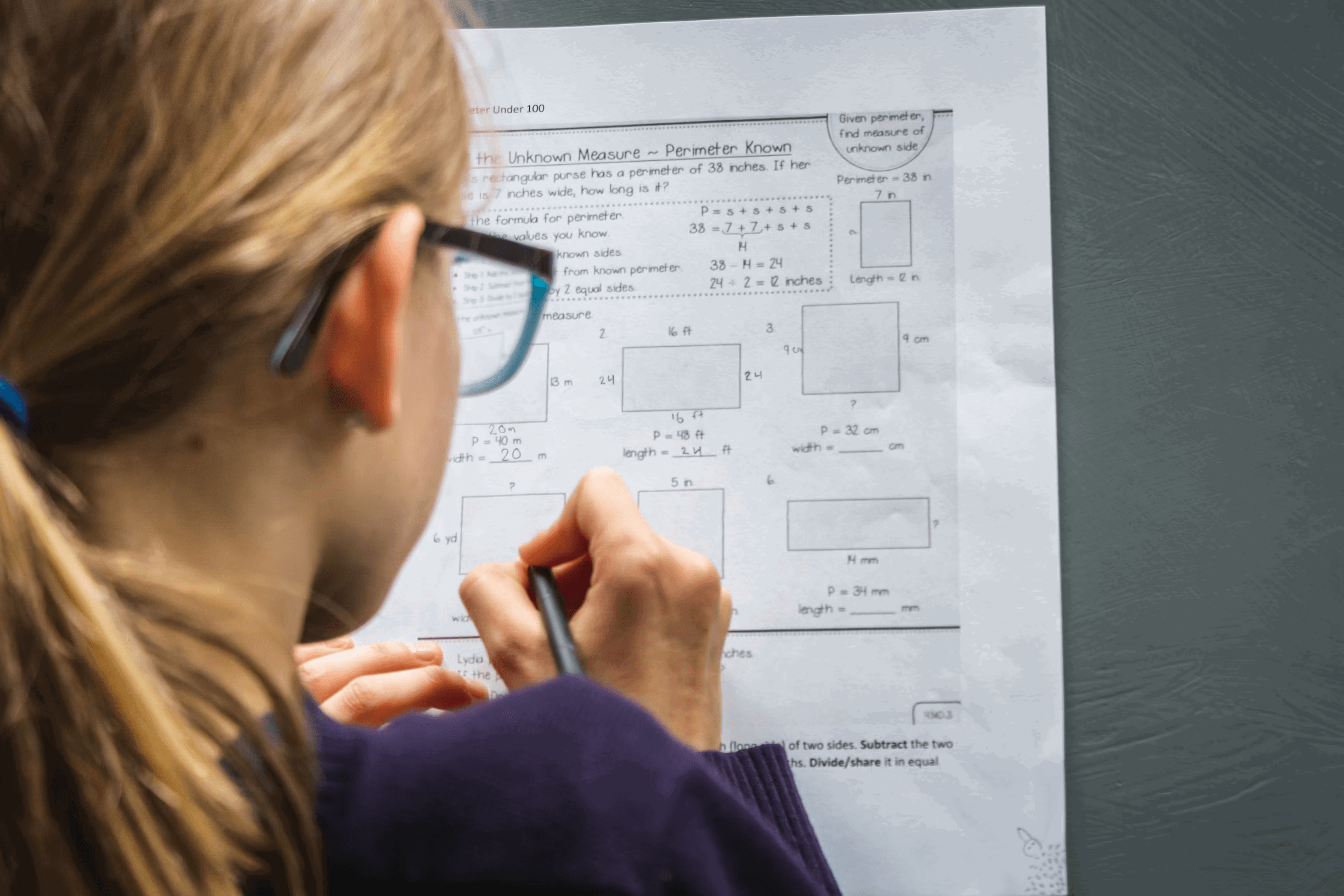10 Common Mistakes to Avoid in Your IGCSE Maths Exam
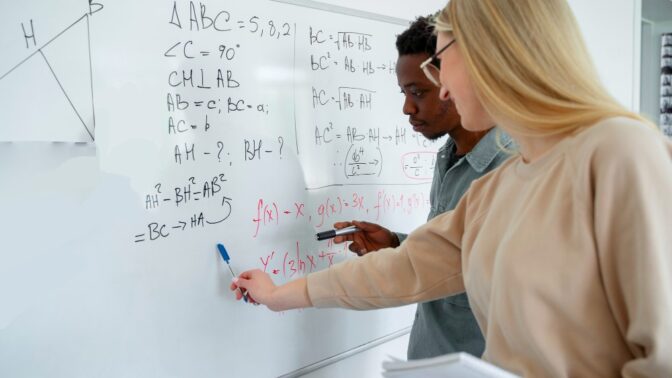
As experienced IGCSE Maths tutors, we see it all: students who grasp complex concepts but stumble on careless errors or freeze under exam pressure. The truth is, many IGCSE Maths mistakes that cost marks aren’t about a lack of understanding. Rather, they are about inattention, low confidence, or simply not following exam instructions.
At TutorsPlus, our mission is to help students overcome these hurdles and achieve their best. That’s why we’ve compiled this guide to the most common mistakes in the IGCSE Maths exam, along with practical strategies to avoid them. With the right preparation and the right mindset, you can get the marks you hope for.
Misreading or Misinterpreting the Questions
According to Cambridge Assessment International Education, around 30% of students lose marks in Maths exams simply because they didn’t quite grasp what the question was asking. That’s because examiners love to use tricky words and phrasing to test your understanding.
So how do you not lose these valuable marks? For starters, don’t jump straight into solving the problem. Instead, you should read each question slowly and carefully. As you do it, underline or highlight the keywords such as ‘find’, ‘solve’, ‘prove’, etc.
For example, if a question asks to calculate the perimeter of a rectangle, the keyword here is ‘perimeter’. It is not an area, not an angle, not anything else. Understanding what you need to do exactly can be the difference between an A*/9 and a failure.
What else can you do to avoid misinterpreting questions?
- Make sure you understand all the common Maths terms so you don’t get tripped up by the wording;
- Read the question twice before attempting to solve it;
- Break down wordy problems into smaller parts;
- Draw diagrams or graphs if you think they can help you visualise what’s being asked.
Finally, you can pretend you’re explaining the question to a friend. If you can explain it clearly, then you probably understand it well enough to answer correctly.
Incorrect Use of Formulas
Using wrong formulas is one of the most common IGCSE Maths mistakes, especially when it comes to those complex ones with a lot of parameters.
Big, long formulas can seem intimidating. But don’t let them scare you. Try to think of them as recipes. Each of them has specific ingredients (variables) and steps (how you use them). Your goal is to understand what each part of this recipe means. Then you will be able to use the right formula for the right problem.
For instance, it is easy to mix up the formulas for the volume of a pyramid (V = 1/3 * base area * height) and the area of a triangle (A = 1/2 * base * height). Yes, they look similar but will provide very different results. Your task is to practice these common formulas all the time to know what to use in which situation. In the end, you’ll be less likely to apply them incorrectly under exam pressure.
Incomplete or Incorrect Calculations
Even if you’ve applied the right formula, you are not immune against wrong answers. Careless mistakes and rushing through calculations can really cost you.
This means you need to learn to be precise and patient. Take your time and double-check each step of your calculations. Also, keep in mind the order of operations (BODMAS/BIDMAS), which tells you which calculations to do first.
Calculators are awesome tools to ensure your numbers are correct but make sure to use them in the right way. Sometimes, mistakes may occur because you messed up with decimal points, rounding, or significant figures (i.e. how many digits matter in your answer).
So, when solving a Maths problem, you need to work through each step precisely. This way, you can avoid losing marks to careless mistakes.
Not Showing Your Working
Have you ever solved a question in your head, got the answer… and then lost marks because the examiner couldn’t see how you’ve done it? This happens at IGCSE Maths exams all the time. In fact, studies show that more than 20% of students miss out on easy marks because they fail to show workings.
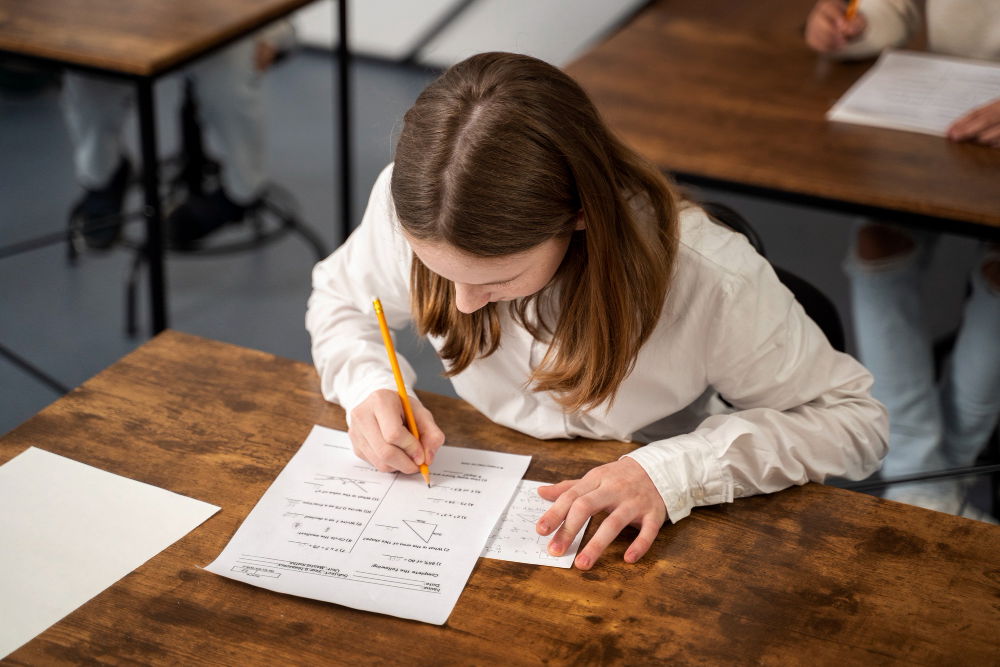
In IGCSE Maths, it’s not enough to just get the right answer; you also need to show how you got there. Why? Because showing your calculations, reasoning, and problem-solving steps helps the examiner understand your thought process and award you those sought-after marks.
Whenever you’re solving equations, you can’t just use formulas on your calculator and write down the result. Instead, the full algebraic working should always accompany your answer.
Make systematic, step-by-step problem-solving your habit. Not only will this make you more confident in your answer but also help spot silly mistakes.
Missing or Incorrect Units
Units in Maths questions tell you exactly what you’re measuring. Unfortunately, forgetting them or using the wrong ones altogether is a common mistake, especially in geometry problems or questions with conversions. Getting the units wrong may indicate that you don’t fully understand the requirements.
When reading the question, always note the units. Even better, circle or highlight them to keep them front of mind. Then, after you’ve figured out the answer, make sure the units match. Nothing can be worse than applying the right formula and showing the right answer only to miss the mark because there are centimetres instead of metres.
Or even worse, you can get confused when converting units. For example, you need to calculate the perimeter of a rectangular with sides of 5 cm and 300 mm. Because there are two units, it is too easy to provide an answer that is different from 16 cm.
So, after solving the problem, always double-check that your answer’s units match what was asked for originally.
Over-Reliance on a Calculator
Calculators are amazing tools. But let’s be honest, they can sometimes make us lazy. Relying on them too much can slow you down and even lead to mistakes.
Don’t forget that a calculator is just an aid. Your brain is the most powerful tool you have. So, it makes sense to save the technology for when you really need it – for example, complex calculations. However, for basic arithmetic, it is better to trust your mental maths abilities.
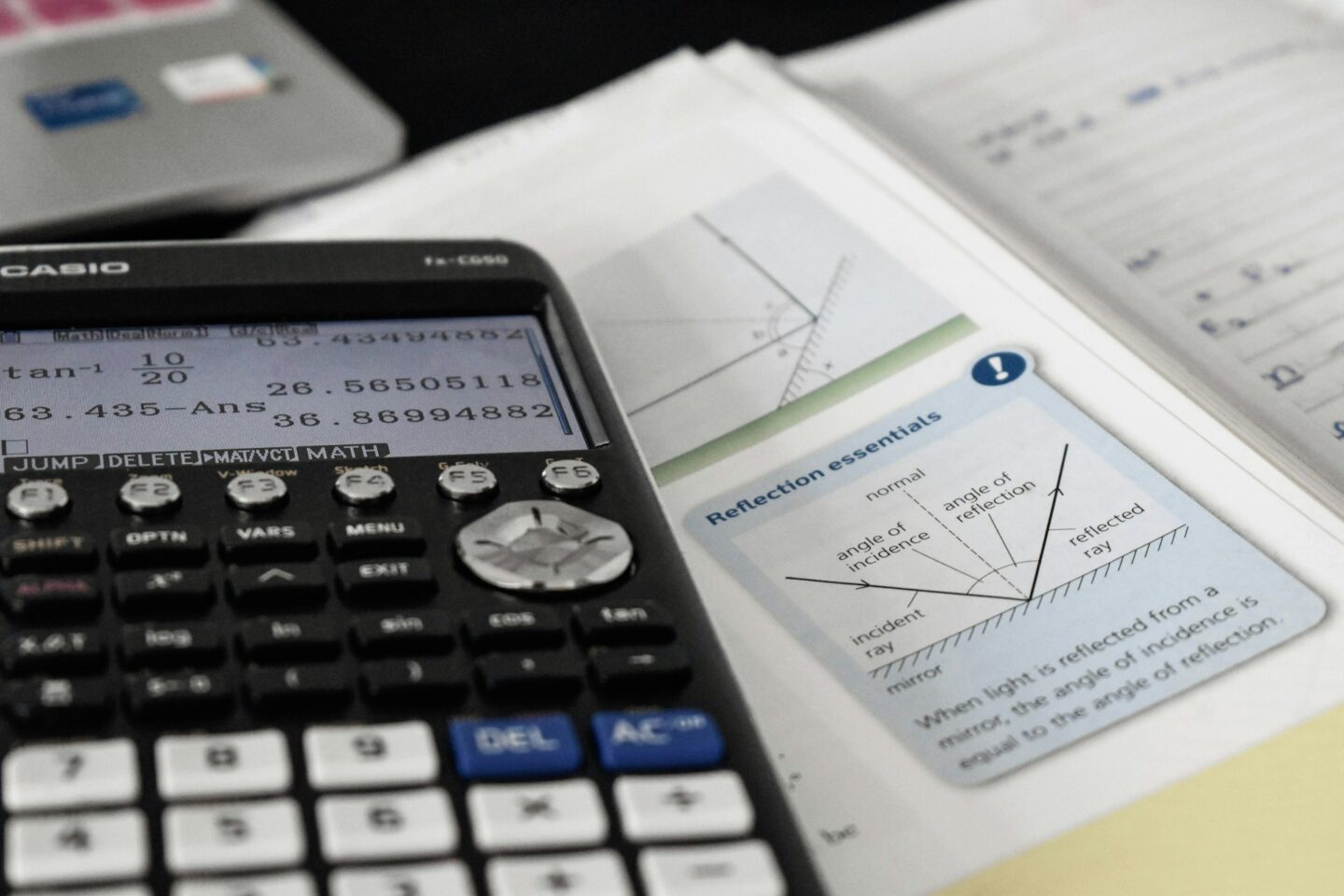
For example, if you need to square a negative number, simply typing it into a calculator will give you the wrong answer. You need to apply the rules of negative number operations first. So, striking a good balance between mental computing and technology is the key.
To speed up your brain and gain confidence in your problem-solving skills, it is a good idea to practice mental arithmetic drills. You can also pair this with non-calculator Maths papers. This will help reinforce your foundations and ensure you don’t become overly reliant on technology.
Book free trial with our certified IGCSE Maths teachers today
100 % of tutors are certified teachers and examiners
Panic and Leaving Questions Unanswered
We’ve all been there – a Maths question comes up that seems impossible to solve, and panic sets in. Turns out, around 30% of GCSE students just leave questions blank when they’re stumped.
The good news is, even if you can’t figure out the full solution, attempting to show some working might bring you partial method marks. For example, if you get stuck on a complex geometry problem, you can still draw and label the figure properly using the given information. These will be the evidence of your efforts.
The best approach is to start with the questions you feel most confident about to build your momentum. If you get stuck with a question, just mark it and move on. You can always come back later with a fresh perspective.
Remember, any working is better than a blank page. So instead of panicking, write down whatever you can to demonstrate your problem-solving process. Those partial marks could really add up!
Poor Time Management
In IGCSE Maths exams, time is working against you. This can make you panic and stress you out, leading to fewer marks than you expected. Luckily, you can get used to working in the conditions when the clock is ticking too fast. Practising with past papers or sample questions can help with that. Not only do they improve your problem-solving skills, but also time management. For example, they may help you develop a sense of pace and learn how much time to allocate to different sections.
Before you start solving problems, spend a few minutes scanning the entire paper. In such a way, you can get an idea of how long to spend on each section based on the number and difficulty of the questions, and allocate your time accordingly.
The bottom line, developing strong time management abilities reduces the risk of rushing through sections or missing questions entirely.
Lack of Confidence
Confidence plays a big role in exam performance -it gives you the power to overcome challenges and achieve the best grades. To build your confidence before and during the IGCSE exams, you need to prioritise your studies. To do so, revise your notes thoroughly and regularly practice with past papers. The more you do it, the better you’ll become.
Beyond studying, it is important to adopt a positive mindset. We all have moments of self-doubt, but what’s the use of them? Instead of thinking about failure, try positive affirmations. Remind yourself of all the hard work you’ve put in. “I can do this!” – you should go to the exam with this exact thought.
If Maths anxiety still sets in, you can try relaxation techniques such as deep breathing or visualisation. Remember, a calm mind is a focused mind ready to ace even the most difficult questions.
Sometimes, we don’t feel confident because we set too ambitious goals – to be the best in class, to get the highest grade, etc. This can indeed be overwhelming. While it is ok to dream big, focusing on smaller, more achievable goals may be a more reasonable approach. For instance, instead of ‘I want to get a 9 in Maths’, you can focus on ‘I want to understand sine and cosine rules’. When focusing on smaller fragments of a puzzle, it is easier to track your progress. With every step forward, no matter how small, you’ll be moving to your big goal.
Finally, don’t be afraid to lean on friends, family, and teachers for support and encouragement too. It is also a great idea to hire a Maths tutor – thanks to personalised guidance, you will be able to overcome your weaknesses and approach the exam day with confidence.
Lack of Experience in Taking the Exam
The IGCSE Maths exam is a once-in-a-lifetime experience. Of course, you worry about taking it because you don’t know what to expect. Luckily, there is a very helpful solution – past papers.
They’ll be your guide through the Maths assessment. The exam structure, question types, and time limits – all of this can be learned from past papers. Needless to say, this information will give you more confidence and help you develop a clear strategy.
Apart from this, working through past papers helps you identify areas where you might need some extra practice. Focus your studying on bridging your gaps and you’ll be ready for anything the exam throws your way.
Moreover, with past papers, you can turn your practice into exam simulations. To do so, you need to allocate specific time to answer all the questions. After completing each paper, review your answers carefully to see what was right and what wasn’t. A few such exam rehearsals and you’ll be ready to tackle the real IGCSE exams.
Conclusions
Avoiding these common IGCSE Maths mistakes requires self-awareness, proper preparation, and developing the right skills. It all may seem like a lot to focus on, but breaking bad habits will pay dividends when it comes to your exam performance.
If you need any extra support in your IGCSE Maths journey, expert tutors at TutorsPlus are here to help. Our tried-and-true teaching methods are designed to identify and resolve any gaps in your understanding. We can provide individual study plans, past paper practice, effective exam strategies, and everything you may need to reach your mathematical best.
Remember, the highest grades are within your reach when you have the right tools and mindset. Make sure to contact us at +41 022 731 8148 or and we’ll help you avoid both critical mistakes and unnecessary errors.
By Sara Lloyd
Sara has been an education consultant for TutorsPlus for 15 years, and is an expert on international IB education. She is also a parent of two lively children.





